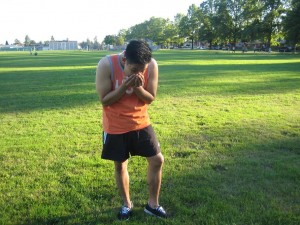It is a known fact that grass allergies are quite common and if an individual is allergic to a particular type of grass such as rye grass, he/she is also likely to develop an allergic reaction to all types of grass due to cross-pollination. The grass allergy season typically starts around May and up to June but it can lengthen or last all year long in areas with warmer climates.
What are the symptoms of rye grass allergy?
The common symptom connected with rye grass allergy is sneezing or popularly referred to as hay fever. Sneezing is also accompanied by other symptoms such as congestion, runny nose and itchy eyes. It is important to note that the symptoms of rye allergy are not that strong as the symptoms of other allergies, but the pollination season is longer, thus making the symptoms last longer as well.

What causes rye grass allergy?
An allergy to rye grass is usually triggered by the pollen produced by the grass during May and June. Take note that once the pollen is breathed in, it will cause a reaction in the body that initiates sneezing and other allergy symptoms. In some cases, individuals with the allergy will experience the symptoms in the later summer months as well. Nevertheless, these allergy symptoms are more likely linked to a mold allergy since mold spores move through the air when mowing during the dry summer months.
Coping with rye grass allergy
It is sad to note that grass is not easy to escape from. On the other hand, the individual can close the windows while indoors in order to prevent the grass pollen from entering the house and trigger allergic reactions. The individuals must be instructed not to mow the grass during May and June since it is the pollinating season. Additionally, the grass in the garden or lawn should not be allowed to grow too tall. As long as the grass is short, it could not produce as much pollen as the taller ones.
Medications
The symptoms of the allergy can be controlled by providing antihistamines. This is an initial first aid measure in order to stop the symptoms from worsening. In some cases, individuals who are prone to the allergy usually take the medication before the allergy season arrives. It is still best to consult a doctor first so that the appropriate dosage can be provided and the time to take the medication.
Important considerations to bear in mind
Always bear in mind that allergies can be annoying and many find it hard to handle. Nevertheless, some allergies can be severe. An acute allergy to rye grass can cause breathing difficulty and rapid heart rate. These are indications of an acute allergic reaction and it would require emergency care right away. If medical care is not provided immediately, it can be fatal.
